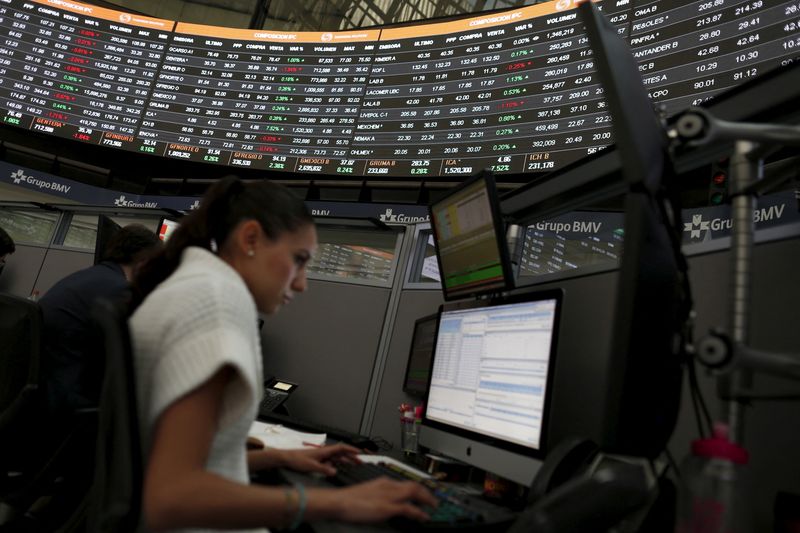Mexico’s unicorns unlikely to IPO locally, says Mexican exchange CEO
2022.07.18 15:21
5/5

FILE PHOTO: A worker is seen inside the Mexican stock market building in Mexico City, Mexico, February 19, 2016. REUTERS/Carlos Jasso
2/5
MEXICO CITY (Reuters) – Mexico’s tech startups may be enjoying a boom, but its top stars are unlikely to list on the country’s own stock market, the national exchange’s chief executive told Reuters in an interview last week.
Mexican startups like Stori and Kavak helped raise a record $3 billion last year, according to entrepreneur group Endeavour, but getting Mexican startups to list locally – even in a bull market – will be a tall order, said Jose Oriol Bosch, CEO of Bolsa Mexicana de Valores SAB de CV.
“It would have been a disaster if one of the Mexican unicorns had listed here,” he said. “(Investors) wouldn’t pay the valuation multiples that they end up paying on the Nasdaq.”
He added, “If I were a unicorn (founder) … I would also go (to the U.S).”
His comments come as the Mexican exchange, Latin America’s second-largest national stock market, faces a shortage of new stock offerings, having failed to host a single IPO since 2017, as well as seeing a string of recent delistings such as Aeromexico.
“It worries me and it occupies my time,” said Oriol, adding however that the problems faced by Mexico’s exchange are largely structural and broadly “out of our hands.”
Oriel isn’t alone – a lack of tech IPOs has plagued larger markets like London, too, with U.S. market valuations and private equity buyouts pulling home-grown startups elsewhere, especially pre-profit companies.
Brazilian tech startups like Nubank have also chased the allure of the United States.
In an effort to attract Mexico’s startups, Oriol said the exchange is now focusing on boosting retail investor demand via a financial education push on social media and a museum dedicated to the 100-year history of the exchange.
The administration of President Andres Lopez Obrador has also offered tax breaks for founders that IPO locally, although Oriol acknowledged this has so far proven ineffective.
A consortium of four Latin American national exchanges, MILA, which Mexico joined in 2014, also initially offered hope, but “hasn’t worked” in bolstering local markets, Oriol said.
Still, the ex JP-Morgan director argues that the equities market is a marginal part of the exchange’s business, which has enjoyed record annual revenues for several consecutive years from its debt-raising products and information services.
The exchange, which is itself publicly listed, is also keen to be seen as a leader in technology, and its low debt record makes a major acquisition in the near-term viable.
“We’re in a good position and open to look for growth,” said Oriol.
Nonetheless, as a public company, the exchange is also susceptible to market volatility. Its shares are down 18% over the past year compared with a 6.3% drop in the benchmark index.
The exchange did not offer any comment on its falling share price.
It may, however, need to answer to investors, who want to see exchanges worldwide attract new listings to avoid them resembling museums themselves.








